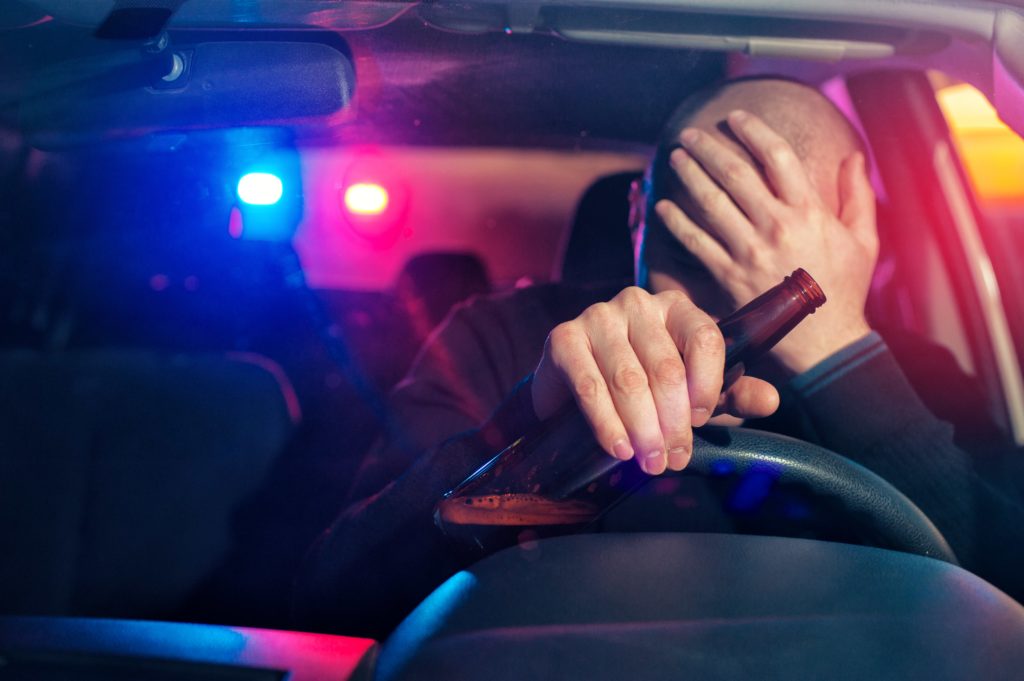What Happens If You Get a Dui in Another State
If you get a DUI in another state, the consequences can be severe. You may face jail time, a fine, or both. The severity of the punishment will depend on the state in which you are convicted.
In some states, a first-time DUI offense is a misdemeanor, while in others it is a felony. If you are convicted of a DUI in another state, you may also have your driver’s license suspended or revoked.
If you get a DUI in another state, the consequences can be severe. You may face jail time, fines, and a driver’s license suspension. In some states, you may also be required to complete an alcohol treatment program.
If you are convicted of a DUI in another state, it is important to contact an experienced DUI attorney who can help you navigate the legal process and protect your rights.

Credit: www.ericgjohnsonlaw.com
What is the Strictest State for Dui?
There is no definitive answer to this question as it depends on a number of factors, including the severity of the offense and the state’s laws. However, some states are typically considered to be stricter than others when it comes to DUI offenses.
For example, Arizona is generally considered to be one of the strictest states for DUI offenses.
The state has a “zero tolerance” policy for drivers under 21 years old who are caught with any alcohol in their system. If you are caught driving with a blood alcohol content (BAC) of 0.08% or higher, you will automatically face charges of DUI.
The penalties for a first-time DUI offense in Arizona can include up to six months in jail, a fine of $1,000-$2,500, and the suspension of your driver’s license for 90 days.
If you cause an accident while driving under the influence, you could be facing even more severe penalties, including up to 10 years in prison.
Other states that have been known to hand down strict penalties for DUI offenses include Alaska, Colorado, Delaware, Florida, Georgia, Hawaii, Illinois, Kansas, Louisiana, Maryland Massachusetts , Michigan , Nebraska , Nevada , New Hampshire , New Jersey , New Mexico , New York North Carolina , Oklahoma , Pennsylvania , Rhode Island South Carolina , Tennessee , Texas Utah and Virginia .
How Does Tennessee Handle Out of State Dui?
If you’re caught driving under the influence (DUI) in Tennessee, you can expect to face some serious penalties. Depending on the circumstances of your arrest, you may be fined, sentenced to jail time, and have your driver’s license suspended or revoked. If you’re an out-of-state driver, the consequences may be even more severe.
Tennessee has a zero tolerance policy for drunk driving, which means that if you’re caught with a blood alcohol content (BAC) of 0.08% or higher, you will be arrested and charged with DUI. First-time offenders will face a fine of $350-$1,500, up to 11 months and 29 days in jail, and a license suspension of one year. If your BAC is 0.20% or higher, or if you refuse to submit to a chemical test, you will face enhanced penalties including a fine of $600-$3,500, up to 11 months and 29 days in jail, and a license suspension of two years.
If you’re an out-of-state driver who is convicted of DUI in Tennessee, the state will report the offense to your home state. This could result in your home state taking action against your driver’s license as well. In some cases, it may even be possible for Tennessee to revoke your out-of-state driver’s license altogether.
It’s important to note that Tennessee also has strict laws regarding underage drinking and driving. If you’re under 21 years old and are caught with a BAC of 0.02% or higher while operating a vehicle, you will be arrested for DUI regardless of whether or not your BAC would otherwise warrant it in another state . The penalties for underage DUI are similar to those for adult DUI offenses , but they also include mandatory participation in an alcohol education program .
How Does Maryland Treat Out of State Dui?
In Maryland, an out-of-state DUI is treated as if it had occurred in the state. The penalties are the same as if the offense had occurred within Maryland’s borders. This means that a person convicted of an out-of-state DUI will face jail time, a suspended license, and other penalties.
If you are convicted of an out-of-state DUI, you will also be required to complete a drug and alcohol education program.
How Does Texas Treat Out of State Dui?
A DUI in Texas is considered a Class B misdemeanor, which carries a punishment of up to 180 days in jail and/or a fine of up to $2,000. If the offense occurred in a school zone or involved an open container of alcohol, it is classified as a Class A misdemeanor, which has harsher penalties including up to one year in jail and/or a fine of up to $4,000. If you are arrested for DUI in Texas, you will be required to submit to a chemical test to determine your blood alcohol content (BAC).
If your BAC is .08% or higher, you will be charged with driving while intoxicated (DWI).
If you are convicted of DWI in Texas, you will face the following penalties:
– A first offense is punishable by 3-180 days in jail and/or a fine of up to $2,000.
You may also be ordered to complete 80-200 hours of community service and have your driver’s license suspended for 90 days.
– A second offense is punishable by 2-360 days in jail and/or a fine of up to $4,000. You may also be ordered to complete 80-200 hours of community service and have your driver’s license suspended for one year.
– A third offense is punishable by 180 days-10 years in jail and/or a fine of up to $10,000. You may also be ordered to complete 80-200 hours of community service and have your driver’s license suspended for one year.
If you refuse the chemical test or if your BAC is .15% or higher, you will face enhanced penalties including but not limited to:
Out Of State DUI
States That Don’T Count Out of State Dui
If you’ve been arrested for driving under the influence (DUI) in a state that doesn’t have reciprocity with your home state, you may still be subject to penalties in your home state. Here’s what you need to know about DUI laws and out-of-state drivers.
In most states, if you’re caught driving under the influence of alcohol or drugs, you’ll face consequences in the state where the offense occurred.
But what if you’re from out of state? Can your home state penalize you for a DUI conviction in another state?
The answer is maybe.
It depends on the laws of both your home state and the state where the arrest occurred. Some states have reciprocity agreements with each other, which means they honor each other’s DUI convictions. Other states don’t have these agreements, so a DUI conviction in one state won’t necessarily lead to penalties in another.
Still, even if your home state doesn’t have reciprocity with the arresting state, a DUI conviction on your record can lead to problems down the road. For instance, some employers conduct background checks that include driving records. A DUI conviction could make it difficult to get certain jobs.
Conclusion
If you get a DUI in another state, the penalties can be just as severe as if you had gotten one in your home state. You may face jail time, a loss of your driver’s license, and expensive fines. In some states, you may even be required to install an ignition interlock device in your car.
If you are convicted of a DUI in another state, it will also go on your permanent record.




